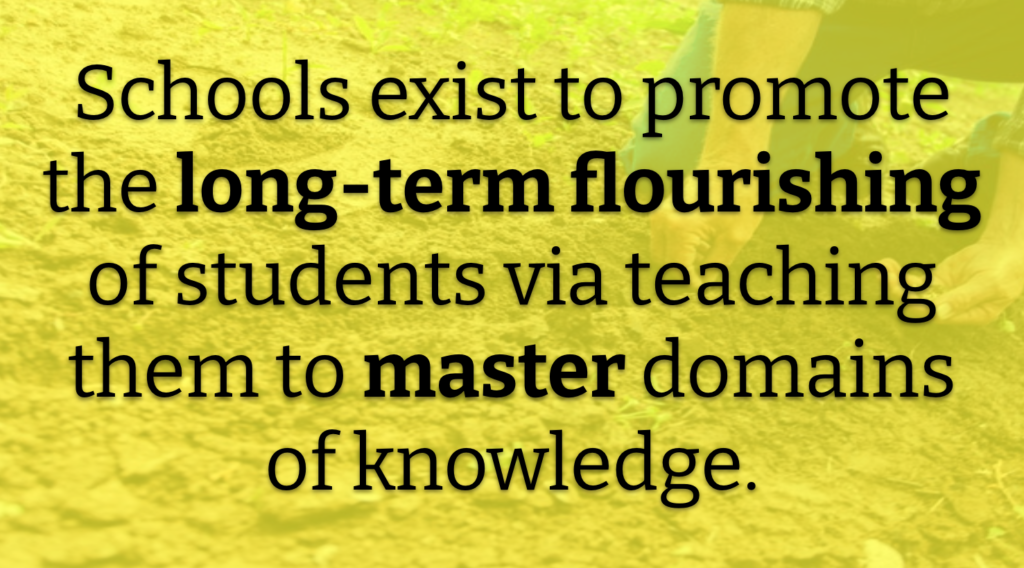It's so easy to overlook student motivation as a serious realm of study for several reasons:
- We've had experiences in past PD or coursework that turned motivation into something dry, confusing, or clinical.
- We have bad associations with the term “student motivation,” likening it to attitudes that blame low performance on students (they just didn't care enough, they weren't motivated enough, they were lazy) or schemes that basically boil down to carrots and sticks.
- We get distracted by what's urgent (e.g., ChatGPT) and forget our fundamentals.
So in this brief article/video combo, let me give three reasons why student motivation deserves our attention, reflection, contemplation, and professionalism. (You'll get my gist through just reading or just viewing, but you'll get a fuller sense of what I'm after by doing both.)
1) Demotivation is painful — for all of us.
We pay too little attention to the fact that we've never a day in our lives woken up and said, “Today I'd like to not care about things, to be jaded, to be disengaged, to be against what I'll be required to do.” Humans like being motivated. We're in harmony when what we're doing is something we care about.
And, conversely, we're in pain when what we're doing seems pointless, irrelevant, or hopeless. So the next time you see a student who is demotivated, you have to remind yourself, “Okay. This is a soul experiencing pain.”
And of course, student demotivation isn't just painful for the student — it's painful for that student's teachers and parents and guardians, too.
This suffering is real. We just often don't realize it.
2) You can't do school without motivation.
When we're thinking our clearest, I think we all agree that school is for this:

Fundamentally, that's what school is for. That's what most students and parents and guardians and community members believe when the majority of them unquestioningly entrust their precious lives to our institutions.
The trouble with that purpose, though, is the word “master” — human beings can't grow in mastery of things as complex as our arts and disciplines without doing certain work and doing that work with care (attention, curiosity, zeal, resilience).
And at its root, that's all student motivation is about: how do people come to care about the things they do?
3) And finally, it's malleable.
I've argued student motivation is fundamental to the long-term flourishing outcomes of the kids in our schools — but other things are fundamental like this too, aren't they? Things like properly scoped and sequenced, knowledge-rich curricula; things like healthy home environments from prenatal to graduation; things like equitable access to opportunities regardless of zip code.
What makes student motivation special among all these, however, is that the research clearly demonstrates that, at least when they are with us in our classrooms, student motivation is greatly influenced by the signals we do or don't send, the actions we do or don't take, the experiences we do or don't facilitate.
We're not the sole factors in our classrooms that influence student motivation — not even close.
But for real, we are a big deal when it comes to this topic. We affect it a lot more than we think we do.
For these three reasons, I've been hunkered down into the topic for a number of years, and now this year I am ready to start sharing my findings.
- The Will to Learn: How to Cultivate Student Motivation Without Losing Ours — available for pre-order now (20% off coupon code = DSJR).
- The Teacher Credibility Signal Booster Mini-Course — register yourself or your school today, and get a complimentary copy of my book mailed to you when it comes out in April (and yes, the book offer includes group orders). Any questions on ordering, just be in touch.
Leave a Reply